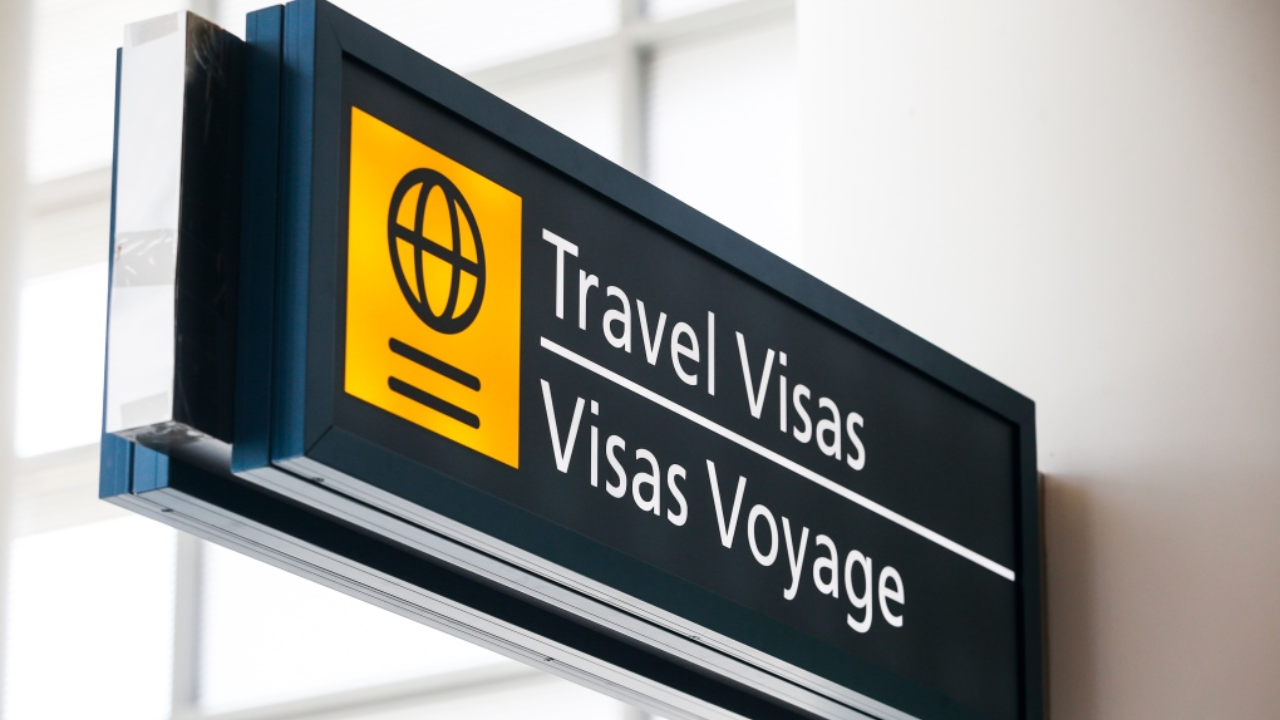

Travel visa information displayed at Winnipeg airport on June 6, 2023. The Canadian Press
Canada is experiencing a significant increase in the number of foreign travellers being turned away at its borders. According to the latest data from the Canada Border Services Agency (CBSA), nearly 4,000 travellers were denied entry each month from January to July 2024. This represents a sharp 20% rise from the 3,271 travellers turned away during the same months in 2023.
The rise in rejections has been particularly notable in July, which saw the highest number of denials in a single month in the past five years. That month alone, 285 non-refugee visa holders were turned away, and 5,853 travellers were given the option to "withdraw their application and leave voluntarily," a category known as “allowed to leave.” This increase in rejected travellers contrasts with the sharp decline observed during the pandemic when restrictions on international travel were in place.
The increase in rejections comes amid ongoing debates about Canada’s immigration policies and their impact on housing affordability. The federal government has faced criticism for its high immigration targets, which some argue have exacerbated the housing crisis. Reports from earlier this year revealed that public servants had warned the government two years ago that ambitious immigration goals could threaten housing affordability.
In response to these concerns, the federal government has taken several actions. It has ended the practice of allowing visitors to apply for work visas while in Canada and is imposing stricter rules on temporary foreign workers. Additionally, the prime minister has indicated that more changes to immigration policy are expected in the fall. Immigration Minister Marc Miller recently stated that the government is considering "significant" changes to the levels of permanent residency, which he characterized as more than mere cosmetic adjustments.
Despite these adjustments, data from Immigration, Refugees and Citizenship Canada shows a slight decline in the number of temporary visas approved this year compared to the same period last year. In the first seven months of 2024, over 1.1 million temporary visas were issued, compared to nearly 1.3 million during the same period in 2023.
CBSA spokesperson Luke Reimer emphasized that the agency’s role in assessing who can enter Canada remains consistent. Decisions are made on a case-by-case basis, considering various factors such as security concerns, criminal history, financial status, health issues, and compliance with entry requirements. Changes in travel volumes, entry requirements, and socio-economic factors also play a role in these decisions. For instance, the government’s February decision to require visas for Mexican nationals aimed to address rising asylum claims.
Reimer underscored that having a temporary resident visa or an electronic travel authorization does not guarantee entry into Canada. The final decision on admissibility is made based on the available information at the time of entry.
Having an 'Identity Verified' badge or being 'Identity Verified' simply indicates that an individual has submitted information to complete our identity verification process or we have conducted internal verification using various authorized websites. While this process includes safeguards, it does not guarantee that the person is who they claim to be.
If you encounter any issues with this profile, please report them here. While all consultants who are verified have RCIC ID, we may not have the latest data in terms of their renewal/cancellation/discontinuation of their RCIC ID.
The "Verified Consultants" profiles are created using publicly available information, including data from the IRCC website, official consultant sites, other listing platforms, and social media. Immiperts.com is an independent platform, not affiliated with IRCC or any registered immigration consultants. To update, claim, or remove your profile, please contact us at [email protected].
╳